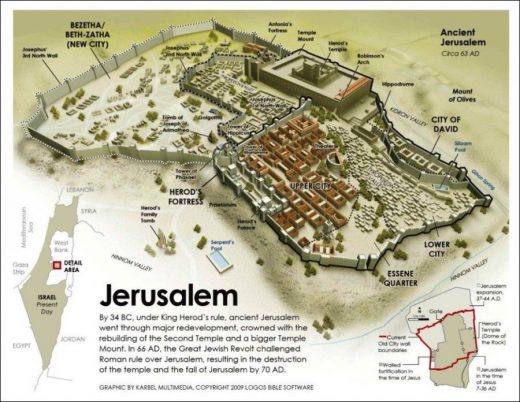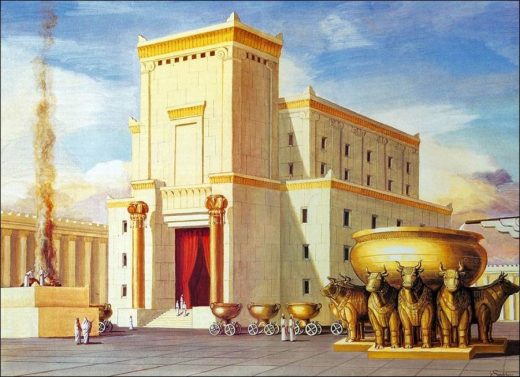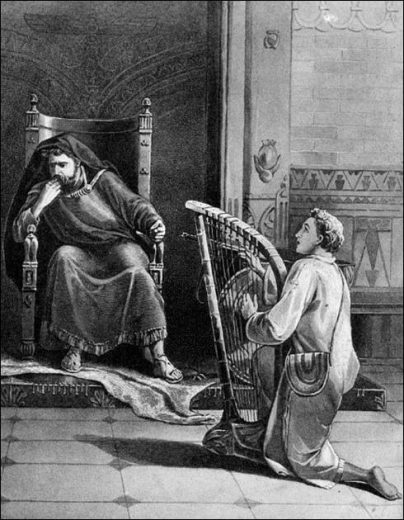There is a city that has a place in the classical administrative division and left its mark on its period with a special status, which still maintains its importance today, which we call Jerusalem.
In the shadow of the current political mechanism, Jerusalem means the House of God. This was mentioned as a city that was small at first but had a great effect in later periods, and whose influence was influential in all ages,
While pre-David Jerusalem contained many tangible elements in terms of beliefs, it was also the victim of the dictatorial regime that took place after its conquest.
So that; Many urban historians distinguish between two different realms about this city. This distinction is mostly divided into two as pre-David and post-David. David’s current Apiru leadership charisma has been a determining factor in determining the city’s destiny.
All the changes that took place during the period from a more separatist city structure to an absolutist, authoritarian and religious city structure form the basis of today’s city of Jerusalem.
Although the city did not contain a sharp structure against the invading forces due to its location, it was built on very sheltered and low hills. Although the part on which modern Jerusalem is located is referred to as the old city, the total population density occupies this area.
Based on the information we obtained from the Amarna letters, some of the peoples of Damascus were settled in this city, which has a mixed society structure.
While the people of the city, which were exposed to an intense migration movement and the existing cultural structure was destroyed many times, had to take refuge in distant countries, they donated a lot of their own culture to the later settled societies. The most important of these is onomostic terms, but many place names continued to appear in the following periods.
An important people we encounter during the intense migration movements is the Jebusites, and this people, who are Canaanite in origin, are also known as the founders of the city, in a way, by taking over the city.
The city of Jebusi, which was also called by a different name during the reign of David, is also worthy of being called Mesudat Zion, that is, the Fortress of Zion.
Although it is very difficult to put it in a purse in terms of origin, it is also clear that it is not Hebrew. This flood of meaning, which has a special place in the Bible, will be a source for Jerusalem to have an autonomous meaning in the future.
When David invaded this city, he reinstated the original name of Urusalim or Jerusalem, and although he initiated some revolutions, it cannot be said that he was very successful in erasing the traces of the past.
Trying to contain it with his strict administration, David wanted to create an Israeli cult in this city, but even centuries after that, no one could achieve this success.
All kinds of incidents during the capture of the city, of course, have no equivalent in the Bible, and the massacres in the invaded city are not mentioned at all. It is not difficult to say that this story, which has basically become a water issue, is also dramatized in the sacred texts.
The emphasis on the fact that the water issue in the city is superior to all other issues is not very remarkable in terms of David’s charismatic leadership.
Unfortunately, our knowledge about what David did to the residents and their fate, who attempted to determine the fate of the city, is insufficient. Again, it is very difficult to obtain a puzzle piece belonging to this period from the archaeological studies carried out in this city.
In this city where a new power was established, the classical understanding of the state was shelved and the bureaucrats had already declared their loyalty to David without a doubt.
In such a situation, the aristocrats of the period, who were delirious with pure culture, did not have much of a chance against David. The strict suppression of the ancient Israelite diaspora in this city was too early for the creation of an ostensibly Jehovahist society.
Liberal Jerusalemites from the previous power were unable to express their sincere devotion to David. The influence of his relatives was very strong in David’s power, because he did not have many other Jehovah’s people around him whom he could trust.
So much so that it is unfortunately very difficult to talk about an army or the Israeli army in the newly established government. The mercenary status of the Jebusites, who was one of the Canaanite communities before, continued in this period as well.
The army is very diverse in its ethnic composition, and David was actually not very happy about it. This diversity also reveals the complexity of the period in the majority of the Ancient Near East. Although the mercenary issue did not pose much of a problem in the state mechanism, the state model that David wanted to establish was entirely based on Israeliist propaganda.
Although the military group seemed Israeli, the fact that the main underlying thought was based on salary did not reflect a very sincere situation. This factor, which became equivalent to the phrase “Whose ship you are on, you should swing your oar”, was not a problem in the state administration. So much so that this group, which brought down David’s Jehovah to seven floors below the ground, also indirectly challenged David.
Every godly activity made sense only in David’s eyes, that almost all the military contingent never renounced their ancestral religion and embraced Jehovah. The way in which David and Solomon, who were contemporaries of the Pharaonic era, governed the city, had almost the same characteristics as authoritarian Egypt.
The most important factor in this regard is the ideological structure of Abdu-Hepa, which came to the fore during the Amarna era. The chaos and political order that David created in the city was also met with concern by the Ancient Near East societies; The one-man regime had begun to re-emerge.
Jerusalem was now called the City of David, and all its neighbors were oppressed by David’s authority. This city, which forms the backbone of the central organization, has become a location where bureaucracy also comes to life.
Although moving his capital from Hebron, David, who determined the fate of Jerusalem, was also aware that this place had never actually become the city of Israel. Thus, while Jerusalem declared its neutrality in the Ancient Near East geography, David was able to establish a federation by uniting tribes from different roots under one roof.
These were undoubtedly Israelis and non-Israelis… David, who created a new cultural diaspora, assumed the task of being the founder of the Neo-Israel era in the Ancient Near East.
Visits: 593





